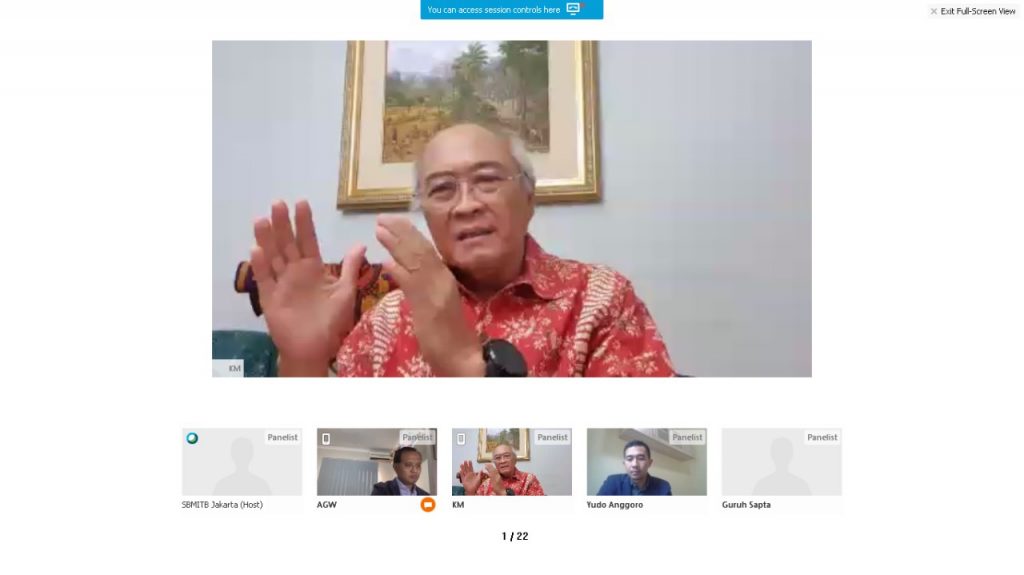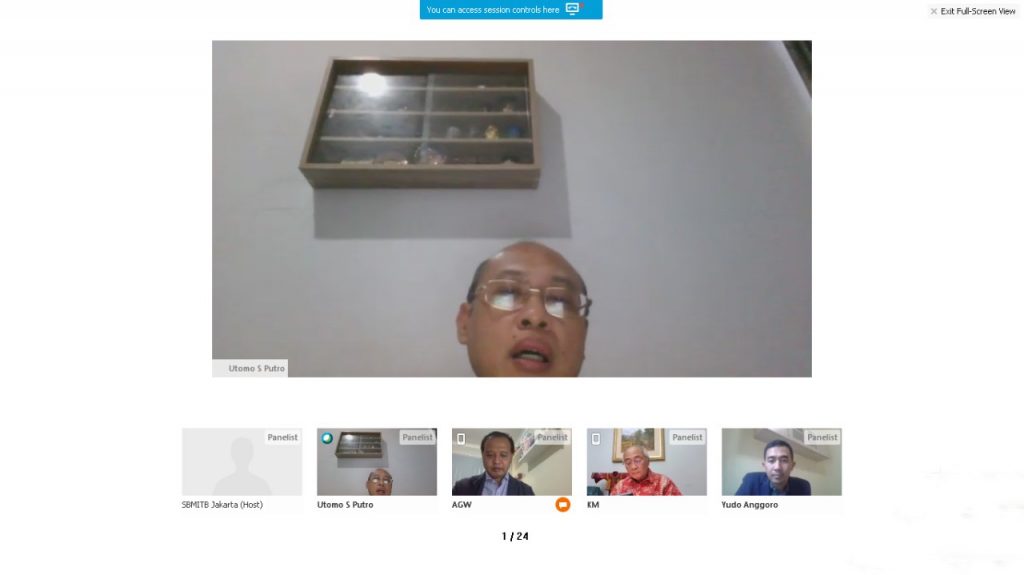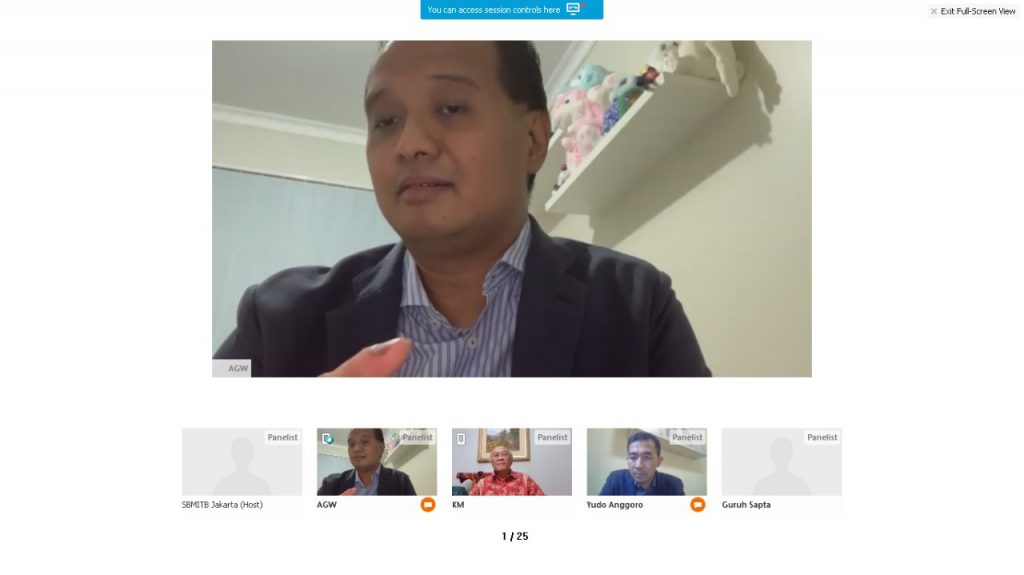Image illustration: Stock photo of SBM
In the middle of the coronavirus pandemic, SBM ITB launched Center for Policy and Public Management marked by a webinar on Policy Analysis in the Crisis, Thursday (14/5/2020). “We have been present in the community for 17 years. With the existence of this center, SBM ITB will contribute to the formulation of public policy and governance through a management approach,” said the Director of the Center, Dr. Yudo Anggoro.

The webinar was attended by hundreds participants and presented several speakers with a keynote Prof. Kuntoro Mangkusubroto, Founder and Chairman of the School Advisory Council of the School. In his remarks, Kuntoro conveyed his experience in leading the reconstruction and rehabilitation of the Aceh post-tsunami in 2004. “There are seven lessons that can be taken by policymakers during this pandemic,” said the former Head of BRR-Aceh Nias.

He went to elaborate. “First, rapid and responsive institutional coordination in disaster management. Second, maintaining a sense of crisis by policymakers. Third, priority on disaster management. Fourth, donors identification if needed. Fifth, the principles of integrity and accountability that must be upheld. Sixth, experienced team and strong leadership. Seventh, clear and consistent communication with all institutions involved,” as the Guru told the audiences.

Moved to the other speaker, Vice Dean of Academic, Prof. Utomo Sarjono Putro demonstrated his idea in managing policies in crisis through the system science approach. “Every policymaker will be able to see crisis based on their subjectivity by determining the appropriate problem context. Thus, the complexity of the problem can be simplified into several categories,” explained by the Vice Dean.
Last speaker to present was a former President Director of Transjakarta, Dr. Agung Wicaksono. He offered an analysis of the scenario planning approach as a holistic approach to plan the future, especially in a crisis characterized by a lot of uncertainty.

“With scenario planning, we can compile stories of possibilities that might occur in Indonesia after Covid-19 for future planning. But the most important thing is to reunite the various elements of the nation, particularly to those that have been polarized. The Covid-19 crisis must be one common enemy for the Indonesian people,” closed Agung.




